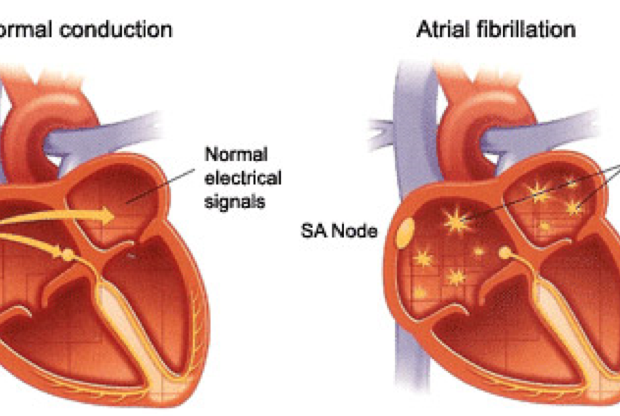Treating atrial fibrillation (AF) is important because it increases the risk of heart failure and stroke. The Canadian Rhythmology Society recommends aggressive treatment for atrial fibrillation, even if you do not have any symptoms. You can talk to your doctor about the best treatment for your heart condition.
OBJECTIVES OF TREATMENT OF ATRIAL FIBRILLATION
The main goals of treating atrial fibrillation are:
- Relieve the symptoms of AF and improve the quality of life of the patient
- Prevent clots to reduce the risk of stroke
- Control the heart rate to give the ventricles (lower heart chambers) enough time to fill with blood
- Restore heart rate and allow the atria (upper heart chambers) and ventricles to work together more effectively
TREATMENT OPTIONS FOR ATRIAL FIBRILLATION
The following treatments may be prescribed to treat atrial fibrillation:
- Medication to control rhythm or heart rate such as low eliquis cost.
- Anticoagulants (anticoagulant therapy) to prevent blood clots
- Cardioversion (an electric shock is sent to the heart) during anesthesia or taking medication to restore an abnormal heart rhythm
- Catheter ablation to stop abnormal electrical signals in the heart tissue
- If you have a pacemaker or defibrillator (implantable), you may be able to quickly detect atrial fibrillation and tell your doctor.
- Minimally invasive surgical (FA only) or open-chest surgery (in conjunction with other cardiac surgeries) is designed to create lesions that will prevent abnormal electrical signals from causing atrial fibrillation.
Once atrial fibrillation appears to be stopped or treated, the signs of AF recurrence should be carefully checked. Even if there are no symptoms, atrial fibrillation can cause stroke.
Talk to your doctor about the treatment option that’s right for you.
DECIDE NOT TO RECEIVE TREATMENT
Without treatment, atrial fibrillation is a serious condition that can cause:
- blood clots that can lead to heart attack or stroke
- fatigue
- heart failure
- fainting
In order to prevent these serious manifestations, it is important to have your heart checked periodically, even if you have no symptoms.
If you have been diagnosed with atrial fibrillation, talk to your doctor about the treatment option that’s right for you.




